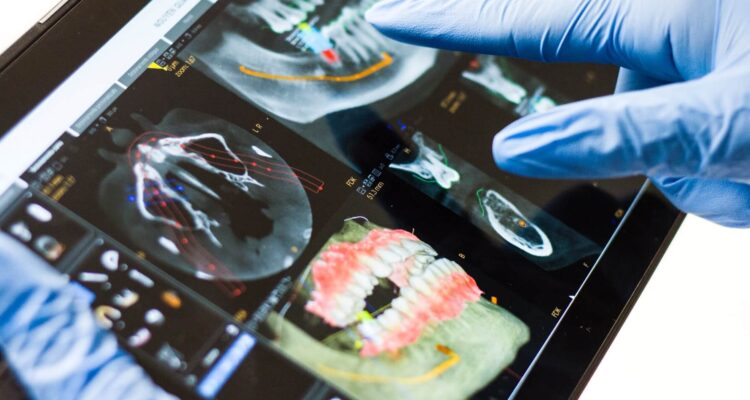When you experience constant pain close to the jaw, ear, or the side of your face alongside difficulties in jaw movement, chances are you might have TMJ disorder. Temporomandibular joint (TMJ) disorder refers to the pain in the jaw joint, which could be caused by a variety of reasons.
In case you didn’t know, TMJ is the portion that connects the lower jaw to the temporal bones located at the sides and base of the skull. Any problem with this area would lead to neck and head pain, ear pain, and the like. This is rectified with TMJ treatment in Albuquerque. Here’s more you need to know:
Signs of TMJ Disorder:
Here are some symptoms of TMJ syndrome:
- You here a clicking or popping sound when you move your jaw. Others may also be able to hear it as well. This would indicate that the disc isn’t in the right position, so get it checked by a professional.
- You may experience ringing in the ear or ear pain. TMJ syndrome could cause ear pain or infection even when your ear is fine.
- The lower jaw may move to a side when you open it. Your jaw may even lock in when its wide open, meaning that it is dislocated.
- Sometimes you won’t be able to chew or bite properly since your teeth won’t fit together as intended. If you encounter bite issues, get in touch with a dentist in Albuquerque NM for assistance.
- Headaches and dizziness, associated with vomiting and nausea.
- Difficulties in swallowing due to muscle spasms caused by TMJ syndrome.
What Causes TMJ Disorder?
TMJ syndrome is caused due to the following:
Rheumatoid Arthritis:
Rheumatoid arthritis will impact the TMJ by causing inflammation in the joints. The symptoms usually show up during the later stages of rheumatoid arthritis.
Osteoarthritis:
Osteoarthritis is another form of arthritis that can impact any joint in the body, including TMJ. The hard and soft issues around the jaw joints will be affected in this case. As a result, the shape and function of your jaw could be altered.
Trauma:
Trauma can be categorized into microtrauma and macrotrauma.
Microtrauma includes clenching and bruxism. When you clench constantly, or frequently bite on things such as pen or fingernails, it could cause pain in your jaw. Bruxism, on the other hand, refers to the habit of people grinding their teeth, especially during sleep.
Macrotrauma is when your jaw is damaged due to a punch or accident. This could dislocate the TMJ, for which TMJ treatment in Albuquerque is offered.
How Long do the Symptoms Last?
The symptoms of TMJ disorder will usually last a few days or week, and will subside once you get the treatment from a professional. Then again, this depends on the patient and their condition. Make sure to resolve the problem as soon as possible before it can become chronic.
Research and discover a qualified dental professional who can offer an array of procedures including TMJ treatment, teeth whitening in Albuquerque, dental implants and more. They can help prevent any further adversities down the road.



